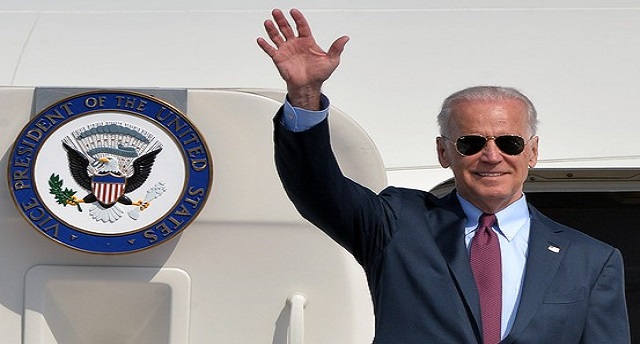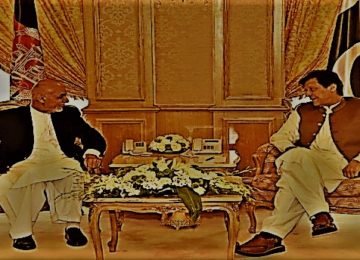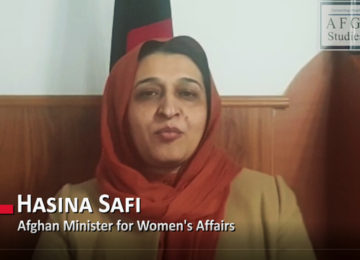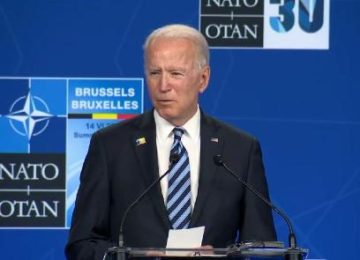November 13, 2020
The recent US presidential elections and as its outcome, the election of Joe Biden to the White House, would have an impact on all the international issues in general, but Afghanistan in particular. The President-elect Joe Biden, reportedly had been against the stationing of large troops as part of counter-terrorism efforts, and rather advocated Special Ops, more effective in countering terrorism. With the shift in Presidential administration, it is expected that Biden might take a more responsible role for US as it withdraws from Afghanistan compared to Trump’s approach for the immediate withdrawal, regardless of its implications for Afghanistan and the region.
War in Afghanistan has been considered by many as a conflict with no end in sight. The outgoing President Trump is the first one in recent history who went out the way, and opted a different path rather than going along with the usual approach towards Afghanistan. Since the US launched Global War on Terror (GWOT) and Afghanistan’s occupation in 2001, the history of Afghanistan has been beset by attempts, mostly half-hearted, at achieving peace at Kabul. However, the serious efforts at achieving peace commenced in 2018, when efforts at Afghan peace process gained new momentum. This was due to the change in the behavior of Taliban who became more receptive and open to dialogues and negotiations as well as the realization among US’ policy circles of the inconsequential war efforts. In parallel, Kabul signaled positive overtures towards Taliban, starting off by announcing unilateral ceasefire as a confidence building measure. In this regard, the role of the regional actors, particularly Pakistan, forms part of the series of concerted efforts, making the prospects of negotiated settlement, a likely possibility.
However, the road to peace in Afghanistan is still not a smooth one, compounded as it is, by perils and pitfalls. Spoilers of the peace process, benefitting from continued conflict in Afghanistan, exist in many incarnations, within Kabul and Taliban and Islamic State of Khorasan Province (ISKP), and other actors as well. Although, the issue at hand now is to convince both the Taliban and Kabul towards a ceasefire, most importantly, the role of the US in pushing for a sustained cease-fire yet there is little or no progress regarding the kind of political set-up, post-peace Afghanistan.
The issues such as the constitution, rights and role of women needs to be earnestly addressed in Afghan peace process and not to meet the same fate as was the case in the US-Taliban Doha deal (February,2020). The intra-Afghan talks at Doha are rife with challenges as far as post-peace political system of the Afghanistan is concerned, such as the ambiguous posture of
Taliban, who have claimed every now and then, that they do not want a monopoly of power and the type of constitution they want. Clearing out all the uncertainties which might be hampering the peace process, needs to be ascertained. US as a greatest stake holder in the peace and stability of Afghanistan, has a huge part to play in this respect as well.
With respect to the exit strategy of US, ensuring stability, while leaving is a responsibility which US can not shy off – packing bags and leaving a mess behind. Despite the plethora of challenges, the ongoing talks offer a chance to an Afghanistan for peace; the country witnessing bloodshed and turmoil, for decades. It allows Afghans to take a chance on peace by coming together and accommodating each other. Being a signatory to Doha agreement that helped Taliban and Kabul come to the negotiating table, the final outcome of the talks, would definitely concern US and its regional interests.
With Joe Biden, as the new President elect, one thing is sure Biden won’t treat Doha like Trump treated Joint Comprehensive Plan of Action (JCPOA) with Iran – unilateral withdrawal. He may prefer to stretch out the troops’ withdrawal, making it truly conditional to end Taliban violence and use the extra time to pressurize the Taliban more to ensure an agreement that is a peace deal, not just a withdrawal deal. Nonetheless, peace should not be equated with conditions, everything should be on the table, open for negotiations. Both the Afghan government and Taliban should demonstrate extreme patience and flexibility, because this is the best chance for peace in decades; if lost, it might need another decade to come at another such opportunity. Hence, peace should be a must, better late than never.
The author Tooba Altaf is an International Relations graduate while working as a Researcher at Center for Research and Security Studies, Islamabad(CRSS).
© Center for Research and Security Studies (CRSS) and Afghan Studies Center (ASC), Islamabad.








